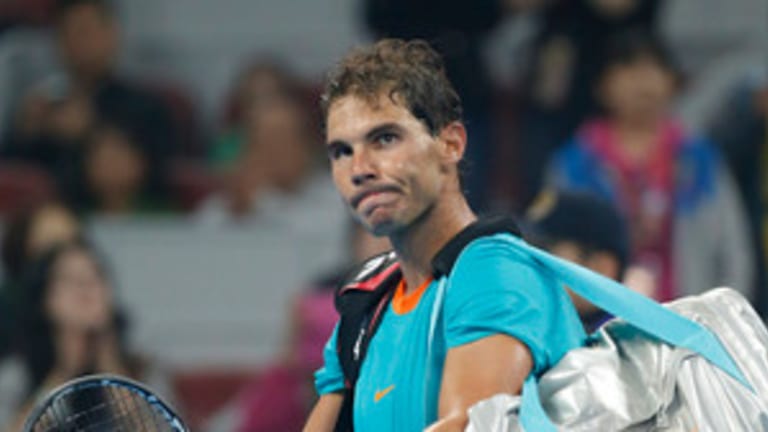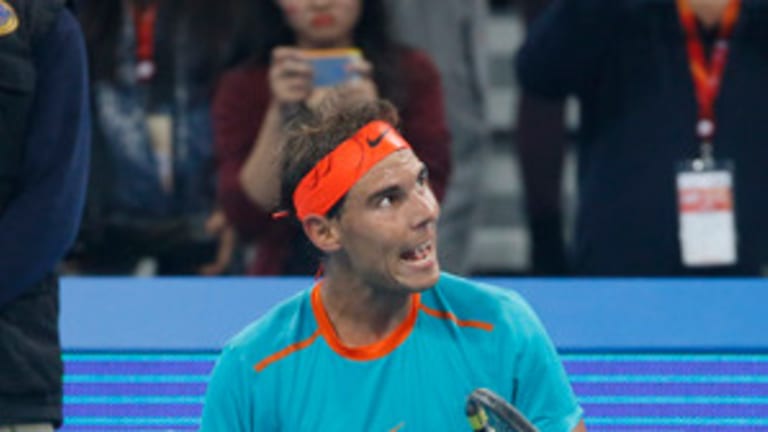While it ended sooner than scheduled, Rafael Nadal’s latest return to action—don’t call it a comeback, he’s only been out since July—still lived up to expectations.
—It began with his 13th straight win over Richard Gasquet; I’m guessing Rafa could come back after 10 years away and still give Poor Richard a flogging.
—It included a delay-of-game penalty when Nadal was set-point down to Martin Klizan, thus bringing the time-violation rules back to the forefronts of our minds. (How we missed you, time-violation rules!)
—It gave Rafa a new target for his ire: The ball. There’s no more blue clay on tour, but there are still Head tennis balls in China, much to Nadal's chagrin. “The ball is so bad here,” Rafa said yesterday. “If you throw the ball on the floor, the bounce goes everywhere.”
—Yet it also featured, even with those bad balls, some vintage Rafa genius. The most memorable example was a supremely acute backhand volley winner to save a break point against Klizan. Overall, Nadal didn't play poorly in Beijing.
—But there was, as there always is with Rafa, some suffering, too. He was up-and-down from the baseline, struggled on break points, won a low percentage of second-serve points in his 6-7 (7), 6-4, 6-3 defeat today, and threw in a few uncharacteristically questionable shots at crucial moments.
—Perhaps because of that suffering, we were treated this week to some vintage Nadal philosophy, expressed as only he can express it. For example, this explanation for his lack of proficiency on break points:
“It is normal," Nadal said, "after a period of time without competing, only having one match before, normal that you feel a little bit the nervous.”
—And it finished, in his last press conference in Beijing, with some old-fashioned Rafa realism, the kind that some people mistakenly interpret as pessimism:
“Mentally is tough,“ he said today about returning from an injury, “every time the same process starts, bad feelings at the beginning.”

